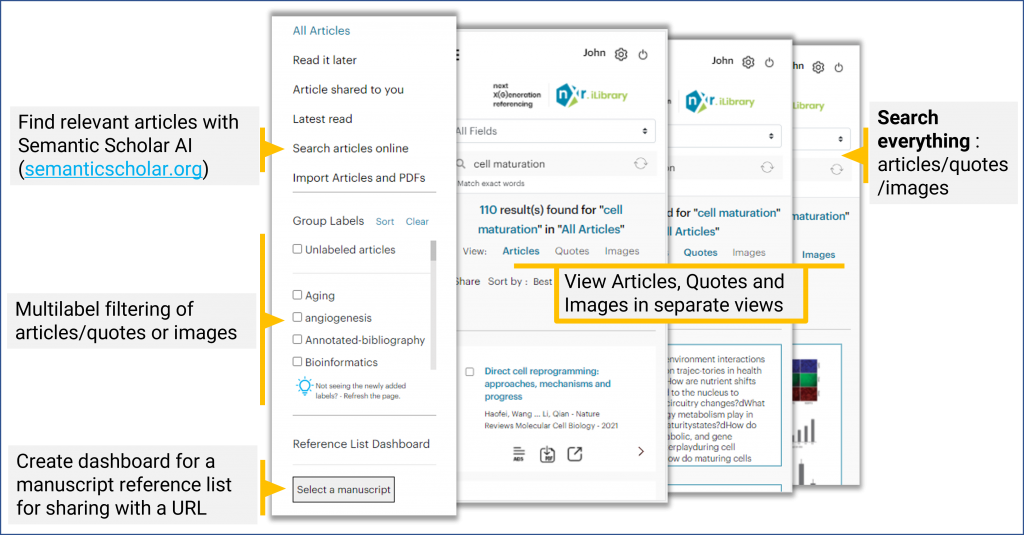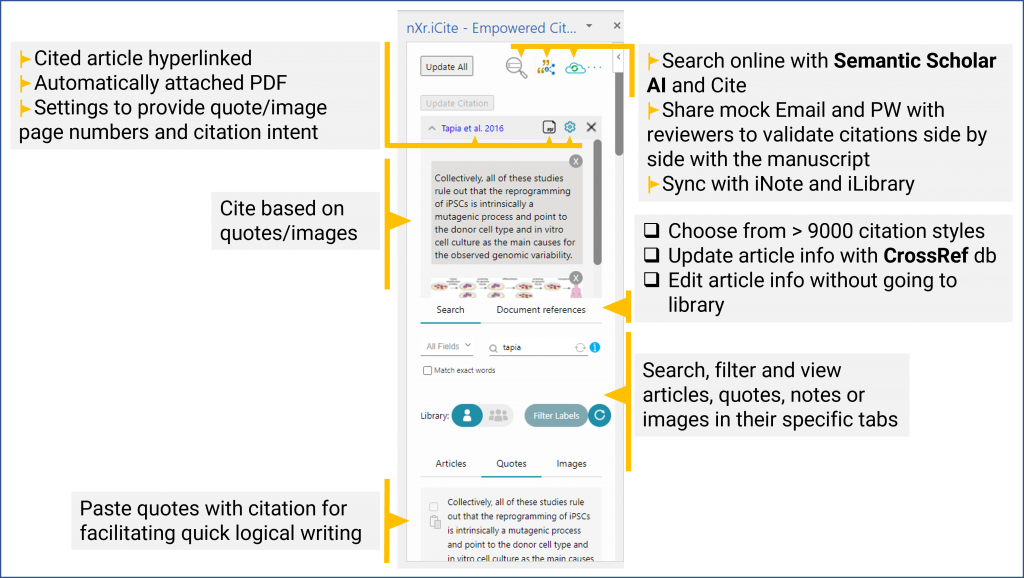nXr uses three modules (nXr.iNote, nXr.iLibrary and nXr.iCite) to optimally integrate various tasks involved in literature collection, annotation, organization and citation.
With the integration, only nXr supports (see nXr aim and strategy) users to:
- write well-substantiated research manuscripts by making informative citations with no quotation/citation errors
- accelerate the assessment of the manuscripts by sharing the informative citations with reviewers
The use of three modules also provides the flexibility to add new features for improving the different types of tasks.
nXr.iNote : intelligent note-taking/annotation module of nXr
nXr.iNote supports you to collect quotes/text/images on the go from any type of article (e.g., web article for reagents besides research articles) to build up a comprehensive knowledge base for manuscript writing.
All the information and items collected through nXr.iNote is automatically stored in nXr.iLibrary.

nXr.iLibrary : Efficiently organize and search everything – from articles to single quote/image
nXr.iLibrary automatically integrate and organize whatever you do in nXr.iNote and also provide various parameter/settings for nXr.iNote e.g., whether to save PDF or not, article group labels (you can also create new labels in nXr.iNote which are then added to the library).
See the following image for an overview of nXr.iLibrary.

nXr.iCite : empowering citations for writing well-substantiated research manuscripts and accelerating their assessment
The final outcome of article collection, annotation and organization is to cite the articles in research manuscripts and make a reference list. The traditional reference managers and their citation tools go that far. But not citation tool nXr.iCite.
nXr.iCite brings most of the library (i.e., articles/quotes/images and their search and filtering capabilities) so that users don’t have to visit their library frequently, take all the steps to make accurate citations (e.g., no quotation or citation error, providing citation intent) and share all information related to the citations with reviewers (see the image below).

So what do you think?
Have we been able to convince you that nXr is truly a next-generation reference manager and citation tool that supports better research?
Please give your response here.
